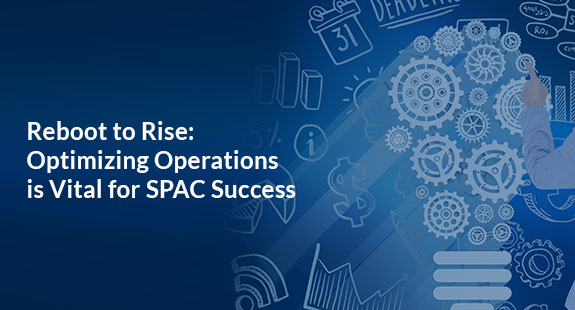Banks have continually invested in new technologies to improve their operational efficiencies and customer experiences. Cash withdrawals from cashier windows in branches gave away to ATMs. And paper-based passbook printing took a backseat when access to digital statements by emails and mobiles came to the forefront. However, new technologies have evolved at an unprecedented rate over the past decade altering the way we interact with banks and how they do business. For instance, an Insider Intelligence survey found that 39% of retail banking executives felt that reducing costs is where tech has the greatest impact, compared to only 24% who say it’s improving customer experience.
And now, as FinTech startups increasingly disrupt the traditional BFSI space with AI in banking and financial services, many banks are struggling to keep up with their customers’ expectations for advanced digital services. According to Forrester, technologies including AI, machine learning, and predictive analytics were the key investment focus areas for banks in 2022.
What slows down AI-enabled digital transformation in banking?
A significant impediment that hampers banks’ efforts in adopting and scaling AI technologies is the lack of a clear strategy for AI. The challenges that make this problem more severe are outmoded legacy operating models, weak data backbones, and AI talent shortage.
Traditional IT systems used by banks typically lack the capacity and flexibility essential to support the variable computing requirements and real-time analysis that closed-loop AI applications demand. Having been in use for decades, some of these systems are also difficult to modify and consume significant maintenance resources.
Also, successful AI-based transformations depend on the quality of the data to be leveraged for recommendations on new business strategies and customer offers. If the data itself is inadequate, inaccurate, siloed, or poorly structured, the AI deployment plan is bound to fail.
Even when a bank has data as its fundamental raw material for machine learning and AI, it must be administered efficiently. It should be available at scale from internal and external resources for secure analysis in near real-time at points of decisions across processes.
According to a survey by Accenture, technical expertise for banks’ directors did grow in the aftershocks of the pandemic. As compared to 57% of banks with at least one board member with tech expertise in 2015, the proportion rose to 67% in 2021. However, this still has scope for improvement. Banks need more tech-savvy teams to apply AI, machine learning, and deep learning to run financial operations effectively and securely. As per McKinsey, AI can provide up to $1 trillion in additional value in global banking each year. It can expedite and rationalize credit decisions, improve risk management and fraud detection, and optimize process automation.
What can banks do to develop an AI culture in their work environment?
The AI-based technologies that only seem “disruptive” today will soon become an essential expectation from the workforce in the BFSI industry. Banks need to act like technology companies now, and to stay competitive, they must invest in continual employee AI training to cement new learnings and encourage curiosity. At this juncture, the individual proficiency of subject matter specialists will also be to their advantage.
Secondly, while hiring for different profiles, banks should look at candidates’ technology expertise besides evaluating their skills in line with traditional criteria. To be frontrunners in innovative banking solutions, new employees will have to be more versatile with a blend of technical and domain expertise.
Another effective strategy for banks that are ready to revamp their working environment with data analytics, machine learning, and other advanced technologies is to partner with an experienced AI service providers. They should work alongside technology experts who can help them explore and focus on how exactly AI can transform their entire business value chain.
At CriticalRiver, we help clients leverage data-driven AI across various use cases to maximize their ROI from technology investments. We enable them to overcome the constraints of legacy systems while scaling successful proofs of concept to drive more success across different segments, including:

Front office operations
AI-supported contact centers, CRM, marketing, customer analytics, business strategies, merger & acquisitions (M&A), and consolidations

Core banking products and services
AI-based retail and commercial banking, cards and payment operations, collections & recovery, M&A advisory, collateral management, liquidity, and cash management

Back office operations
AI-driven fraud detection & risk management, compliance administration, audits, reporting, and service optimization
And yet, despite all the talk about the advantages of AI in banking, talent shortage is posing to be a serious bottleneck that impedes the appropriate utilization of the technology in the banking space. Infact, It is emerging as a key reason that digital transformation in banks could slow down. Interestingly, a recent Bain report suggests that India is emerging as a global source for talent in data and AI skills, producing 16% of the world’s AI talent pool, placing it among the top three talent markets.
With key centers of excellence in India, CriticalRiver is well-positioned to harness this potential and deliver AI-led digital solutions for its banking customers. At CriticalRiver, we firmly believe that applying AI and associated technologies do not imply undermining human skills in the BFSI sector. We are living in the “Age of With™” where humans interact with machines and data to raise business competitiveness, reduce operations costs, improve customer experiences, and make new offerings more sustainable.
We help clients spark a transformation mindset in their work culture and know that digitalization is not the sole responsibility of their IT teams. AI is no more a science fiction concept—it is rapidly moving into the mainstream for every industry, and its potential needs to be realized with greater collaboration and adaptability for change.
Summary
Banks have continually invested in new technologies to improve their operational efficiencies and customer experiences. However, new technologies have evolved at an unprecedented rate over the past decade altering the way we interact with banks and how they do business. An effective strategy for banks that are ready to revamp their working environment with data analytics, machine learning, and other advanced technologies is to partner with an experienced AI service providers. They should work alongside technology experts who can help them explore and focus on how exactly AI can transform their entire business value chain. At CriticalRiver, we help clients leverage data-driven AI across various use cases to maximize their ROI from technology investments. We enable them to overcome the constraints of legacy systems while scaling successful proofs of concept to drive more success across different segments.





